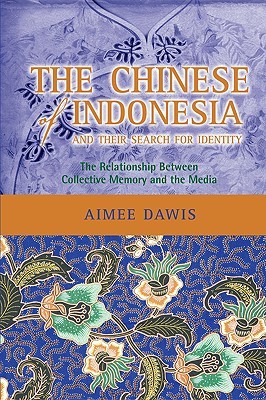
- We will send in 10–14 business days.
- Author: Aimee Dawis
- Publisher: Cambria Press
- Year: 2009
- Pages: 288
- ISBN-10: 1604976063
- ISBN-13: 9781604976069
- Format: 14 x 21.6 x 2.1 cm, kieti viršeliai
- Language: English
- SAVE -10% with code: EXTRA
The Chinese of Indonesia and Their Search for Identity (e-book) (used book) | bookbook.eu
Reviews
Description
This book examines how the Indonesian Chinese who were born after 1966 negotiate meanings about their culture and identity through their collective memory of growing up in a restrictive media environment that specifically curtailed Chinese language and culture. The restrictive media environment was the result of a series of policies administered during the Suharto era (1965-1998). According to the regulations, the Indonesian government closed all Chinese-language schools and prohibited the use of Chinese characters in public places, the import of Chinese-language publications, and all public forms and expressions of Chinese culture. In the past century, and particularly in the past decade, much attention has been given to China and its rising status as a world economic power. Scholarship on overseas Chinese has also shed light on their relationship with their 'mythic homeland', China. In their work, scholars discovered that the Chinese of Southeast Asia have created a prominent economic, political, and cultural presence in countries such as Indonesia, Malaysia, and Singapore. In the 1960s, scholars such as George Kahin, Ruth McVey, and Benedict Anderson were drawn to the political upheavals in Indonesia and the various roles that the Chinese of Indonesia have played in the economic, political, and cultural arenas of their country. In later years, Charles Coppel and Leo Suryadinata have published extensively on various aspects of the Chinese in Indonesia, such as their religious affiliations and education. Despite the considerable attention given to the Chinese of Indonesia, scholars have not specifically studied, through the lens of the media, how a certain group of Chinese Indonesians grew up in a restrictive media and cultural environment during the 33 years when Indonesia was ruled by Suharto. This book takes the first step in examining this generation's collective memory of growing up in a state-controlled environment that has had a significant impact on their identity formation, maintenance, and the (re)negotiation of 'Chineseness' in their everyday lives. This book will appeal especially to media, cultural studies, and Southeast Asian studies scholars, researchers, and students.
EXTRA 10 % discount with code: EXTRA
The promotion ends in 22d.01:53:19
The discount code is valid when purchasing from 10 €. Discounts do not stack.
- Author: Aimee Dawis
- Publisher: Cambria Press
- Year: 2009
- Pages: 288
- ISBN-10: 1604976063
- ISBN-13: 9781604976069
- Format: 14 x 21.6 x 2.1 cm, kieti viršeliai
- Language: English English
This book examines how the Indonesian Chinese who were born after 1966 negotiate meanings about their culture and identity through their collective memory of growing up in a restrictive media environment that specifically curtailed Chinese language and culture. The restrictive media environment was the result of a series of policies administered during the Suharto era (1965-1998). According to the regulations, the Indonesian government closed all Chinese-language schools and prohibited the use of Chinese characters in public places, the import of Chinese-language publications, and all public forms and expressions of Chinese culture. In the past century, and particularly in the past decade, much attention has been given to China and its rising status as a world economic power. Scholarship on overseas Chinese has also shed light on their relationship with their 'mythic homeland', China. In their work, scholars discovered that the Chinese of Southeast Asia have created a prominent economic, political, and cultural presence in countries such as Indonesia, Malaysia, and Singapore. In the 1960s, scholars such as George Kahin, Ruth McVey, and Benedict Anderson were drawn to the political upheavals in Indonesia and the various roles that the Chinese of Indonesia have played in the economic, political, and cultural arenas of their country. In later years, Charles Coppel and Leo Suryadinata have published extensively on various aspects of the Chinese in Indonesia, such as their religious affiliations and education. Despite the considerable attention given to the Chinese of Indonesia, scholars have not specifically studied, through the lens of the media, how a certain group of Chinese Indonesians grew up in a restrictive media and cultural environment during the 33 years when Indonesia was ruled by Suharto. This book takes the first step in examining this generation's collective memory of growing up in a state-controlled environment that has had a significant impact on their identity formation, maintenance, and the (re)negotiation of 'Chineseness' in their everyday lives. This book will appeal especially to media, cultural studies, and Southeast Asian studies scholars, researchers, and students.


Reviews